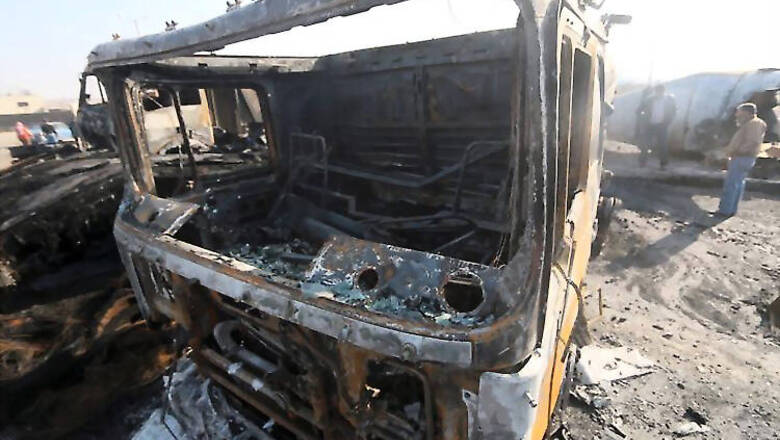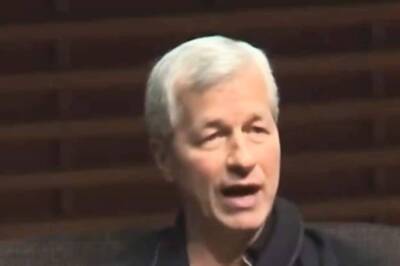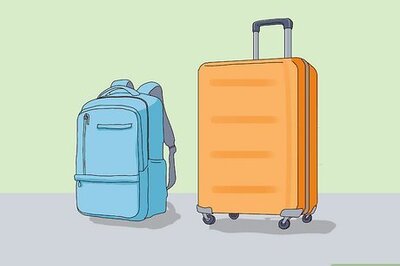
views
New Delhi: Western fury over Russia’s air strikes against the Islamic State in Syria cynically overlooks one important fact: minorities including Christians, Druze and of course Shia seem to be solidly behind the Assad regime. Of Syria’s 22 million pre-war population, it is estimated that perhaps 10% continue to live in government controlled areas.
It’s also important to note that the Syrian army, despite having suffered nearly 50,000 casualties, is still the single largest military force in the country. That army is Russia’s most valuable asset on the ground, a trained, disciplined force with ties going back to the days of the old USSR. All it needed was a fresh infusion of arms and equipment, some element of re-training before being sent back to battle, this time with Russia providing air support.
That air support has come at a cost. The downing of a Russian Su-24 fighter bomber by a Turkish air force F-16 has underscored weaknesses in the Russian military. "Unfortunately, the Russian military is not as professional or as effective as it used to be," notes Prabhat Prakash Shukla, who served as India’s ambassador in Moscow. "The fact that it also lost a helicopter in the process of trying to rescue the pilots of the downed fighter showed how much it has deteriorated."
Shukla believes the Russians would have learnt the appropriate lessons. Also, President Putin’s remark of Turkey’s “stab in the back” bears recall: It is a warning that Russia will deliver a suitable response in time. Also, Turkey’s claim that Russia violated its airspace is suspect given that there are any number of air forces flying attack missions over those skies without any mandate whatsoever.
"Unlike US air strikes on Syria, the Russians took the trouble of observing all the legal niceties,” notes Nandan Unnikrishnan, who heads the Russia studies programme at the Observer Research Foundation. “They had a request for assistance from President Bashar al-Assad, and ‘boots on the ground’ at the Basel al Assad air base in Latakia on the Mediterranean.”
Add to that another base which opened reportedly hours ago near the city of Homs, not far from the border with Lebanon.
Western critics have warned that Russia could be headed for another Afghanistan type defeat, recalling that decade long intervention (1979-89) when Moscow sent in troops to back a communist ally in Kabul. But Indian diplomats do not believe Russian combat forces will get involved.
For that matter, the decision to send in the air force would have come after considerable thought, and taken into account their ally Bashar al-Assad’s worsening position. Bear in mind that the Assad family’s ties with Russia go back to his father Hafez al-Assad, who was Syria’s president for three decades (1971-2000, Treaty of Friendship & Cooperation signed in 1980).
The Latakia base is Russia’s only physical asset in that part of the world, the last reminder of the considerable political and ideological influence wielded by the former USSR over a vast swathe of the Arab world.
Russia’s gambit is not without risks. Moscow knows there is no military solution to this conflict, and therefore it has worked hard to get the Vienna talks going. But the talks have already hit a roadblock in the antagonism between Saudi Arabia and Iran; then there’s Turkey’s covert support for the Islamic State in order to prevent a Kurdish consolidation on its southern border with Syria.
The spectacle of getting sucked into an Afghanistan style quagmire is something the Russians would wish to avoid. But at this point, there’s little doubt about their commitment to Assad and fighting the “good fight”.
(Surya Gangadharan was part of a team of journalists who helped launch The New Paper in Singapore 1988-92. He was Singapore correspondent for Inter Press Service based in Rome. He began his career with PTI in 1981 and has since then worked in India Today, The Indian Express, NDTV& CNN-IBN. He currently edits a magazine ‘Parliamentarian’)

















Comments
0 comment